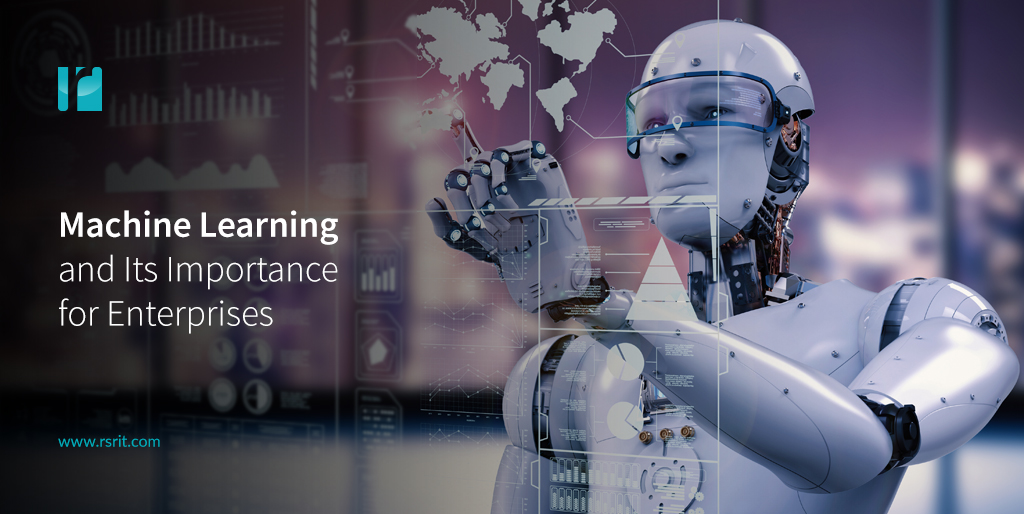In machine learning, computers use their data inputs to learn to identify relevant insights and perform tasks on their own, rather than acting on explicitly programmed instructions.
As data gets bigger and more complex and enterprises increasingly rely on that data to make fundamental strategic and tactical decisions and accomplish operational goals, machine learning is playing an increasingly important role in the interface between enterprises and the data on which they depend.
Today’s enterprises create data continuously, receive even more and have access to incalculable amounts of public-domain or proprietary third-party data. Machine learning has exploded in popularity in response to the sheer volume of data that is now available to enterprises. That’s because increasingly, human beings are simply unable to engage with today’s big data in a reasonable and effective manner.
In response, enterprises have begun outsourcing the Herculean task of finding the critical insights threaded through their mountains of data to machine learning tools designed for just such a task.
If the earliest model of engaging with Big Data was “data mining,” then today’s machine learning AI tools – especially those integrated with neural network capabilities – automate much more of the “mining” analogy.
Today, machine learning tools autonomously perform the equivalent roles of surveying the data landscape, identifying potential rich data deposits, taking and assaying data samples, mining the richest data ore, refining it into pure insights and then shipping the results to the end user.
Here are a few practical examples of machine learning’s value to today’s enterprises:
Know Your Customer
Machine learning tools are excellent at teaching enterprises more about their customers. Most companies have – or have access to – massive amounts of information about their customers. Machine learning’s ability to identify key opportunities for customer engagement – and then automate the process of acting on those insights, such as through Netflix or Amazon’s “You Might Also Like” recommendations – can simultaneously improve customer satisfaction while driving additional revenues.
Machine learning does just what its name says, it learns. When it’s learning about your customers, it’s improving your ability to engage, sell and retain them in ways never before possible.
Know Your People
Many traditional HR functions have been replaced – or at least modernized – by data. Just as customers create data when they interact with your organization, so too do your employees, contractors and applicants.
Machine learning tools help HR teams assess and align not just behavior, but even an enterprise’s culture. They identify both problems and opportunities often before the people involved ever become aware, helping you keep good talent while dealing with potential risks to productivity or worse.
Manage Your Risk
A dollar in decreased losses is as valuable as a dollar in increased sales. Machine learning tools go beyond actuarial science and risk cohorts to comb through mountains of data to identify specific risks and failures of controls – often in ways that were never possible in the past.
For example- insurance companies usually only investigate potentially fraudulent or duplicate claims over a certain value, as the cost of assigning a claims adjuster to investigate a small claim is greater than any possible recovery. But when that investigation is automated through a machine learning and neural network-powered tool such as RSRIT’s Lia coordination of benefits solution, the cost-benefit equation changes dramatically and insurers gain access to potentially millions of dollars in recoveries that insurers have always known were there, but could not affordably pursue.
Machine Learning Powers the Future
Moving forward, machine learning will play an increasingly important role in handling the tidal wave of data that the Internet of Things (IoT) will generate for enterprises, turning that data into actionable insights. When everything from cars to home appliances to streetlights to prosthetic limbs are generating data, the size and complexity of data sets will defeat efforts to harness them that do not have machine learning capabilities built in from the start.
Additionally, machine learning is going to play a critical role in how users interact with their tools in the future, as it’s at the heart of advances in natural language processing.
As increasing numbers of users can interact with digital tools through natural speech instead of code or structured queries, the value of those tools will spread more comprehensively throughout the entire enterprise.
Interested in learning more about what important role machine learning could play in your enterprise? Contact us to find out more.



